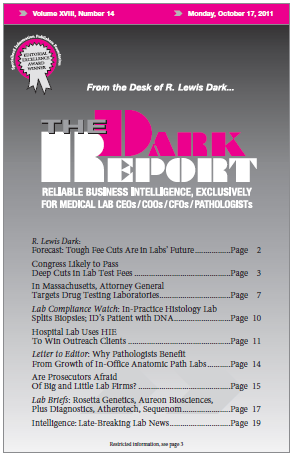CEO SUMMARY: Since taking office in 2007, Massachusetts Attorney General Martha Coakley has aggressively pursued civil charges against drug testing labs. Last month, Coakley announced a criminal arrest in one ongoing investigation after a grand jury indicted a physician in a kickback scheme involving lab testing. In four years, Coakley has reached settlements with four […]
To access this post, you must purchase The Dark Report.


